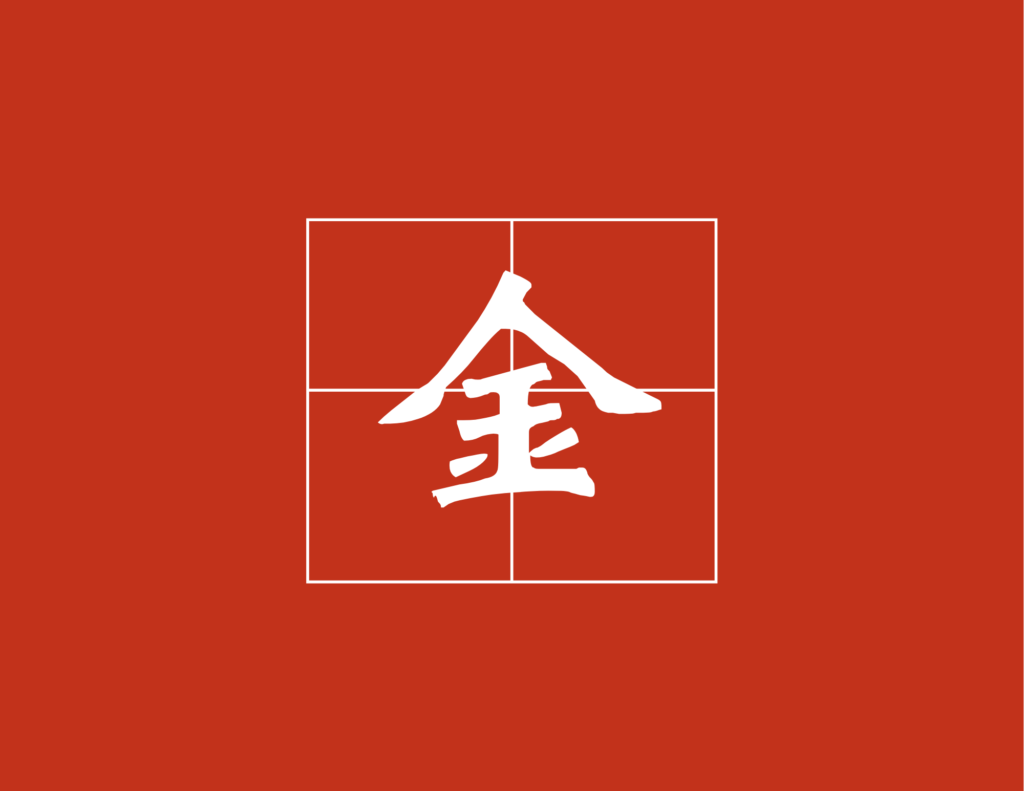Some surnames whisper through history; others announce themselves with a flourish. And then there’s Jīn (金)—which shines unapologetically, both literally and figuratively. Meaning “gold” in Chinese, this name has managed to embody prestige, resilience, and a touch of gleam, from the dusty scrolls of the Zhou Dynasty to the global WeChat groups of today.
Let’s take a closer look at the Jīn surname—where it came from, what it means, and why it continues to sparkle centuries later.
I. A Name Forged in Antiquity
The origins of the Jin surname can be traced all the way back to the Zhou Dynasty, a time when “apps” were bronze vessels and “status updates” involved war drums. Back then, noble families often adopted place names or symbolic characters to represent their clans, and “金” was one of the most treasured picks. After all, who doesn’t want a name that literally means gold?
As time went on, the name was embraced by more than just Han nobles. The Khitan, Jurchen, and Manchu peoples—not ones to overlook a strong brand—also adopted “Jin” during the Liao, Jin (yes, the dynasty!), and Qing periods. What began as a Han Chinese aristocratic name soon turned into a shared cultural currency, a rare instance where everyone agreed that gold is, well, gold.
II. What’s in a Name? A Lot, Apparently.
If you think Jin is just a shiny surname, think again. This name is practically a philosophical treatise in disguise.
In Five Elements theory (五行), “金” isn’t just metal—it’s precision, order, and clarity. It’s associated with autumn, the west, and the crisp energy of harvest. Picture a samurai sword, a golden chrysanthemum, or a freshly sharpened pencil in October. That’s the vibe.
Culturally, gold has always stood for wealth, nobility, and warm optimism in China. A wedding without red and gold? Practically scandalous. As a surname, Jin carries these connotations effortlessly—elegant without being gaudy, bold without being brash.
Even the character itself is a work of minimalistic beauty. “金” is balanced, symmetrical, and a favorite among calligraphy enthusiasts who enjoy their brushstrokes with a side of gravitas.
III. Gold in the Mind: Philosophy, Poetry, and Given Names
The surname Jin isn’t just an ornament—it’s an idea.
In classical literature, “金” appears not only as a precious metal, but also as a metaphor for refinement, purity, and moral integrity. Think of a Confucian scholar with a backbone of gold (metaphorically, of course—osteoporosis is no joke).
Jin has also played an elegant role in Chinese naming traditions. As a character, it’s often paired in given names to suggest brightness (锦绣), resilience (金刚), or rarity (金玉). It’s like giving your child a business card that says, “Destined for excellence.”
Artists, too, have long been fascinated by the duality of gold: soft yet enduring, radiant but not blinding. In visual arts and literature alike, the image of gold is often a stand-in for spiritual depth or quiet strength—very Jin energy, if you ask us.
IV. From Xi’an to San Francisco: The Global Journey of Jin
The Jin surname didn’t stop at the Great Wall. Like a savvy investor, it diversified its portfolio internationally.
In Korea, “金” is pronounced “Kim”—yes, that Kim—and is one of the most common surnames in the country. It’s said that if you shout “Kim!” in Seoul, a dozen heads will turn. Global pop culture has certainly done its part to spread the name, thanks to a few billion Kims and a certain family from Calabasas.
Elsewhere, Chinese diaspora communities across Southeast Asia, North America, and Europe have carried the Jin surname far and wide. Whether it’s spelled Jin, Kim, Kam, or even Kin, the golden identity remains intact. And what’s more, many Jin families abroad maintain genealogies, ancestral rituals, and family associations—proving that you can take the name out of China, but you can’t take China out of the name.
V. Conclusion: A Name That Shines Through Time
To wear the surname Jin is to carry a legacy that’s equal parts myth and meaning, ancient scroll and modern passport. It is a name that commands quiet respect, not because it shouts—but because it glows.
From its noble beginnings to its elemental symbolism, from classical poetry to the K-pop charts, the Jin surname is a reminder that brilliance endures. It’s not just a family name—it’s a philosophy, an aesthetic, and occasionally, a very fancy nameplate on the door.
In short? If your last name is Jin, you’re in good company—and even better symbolism.
